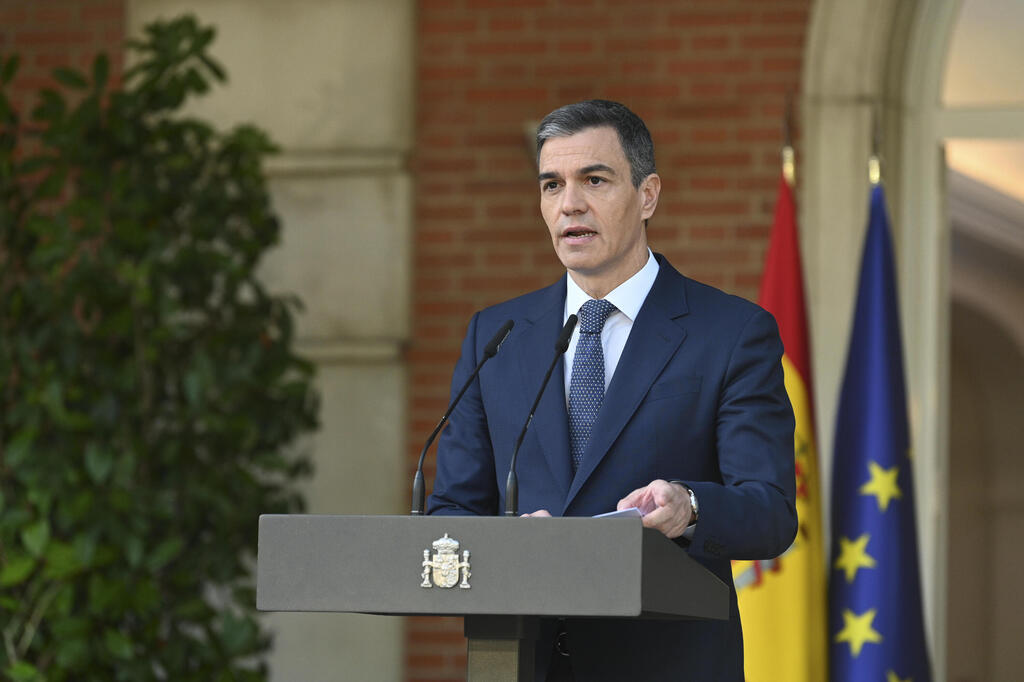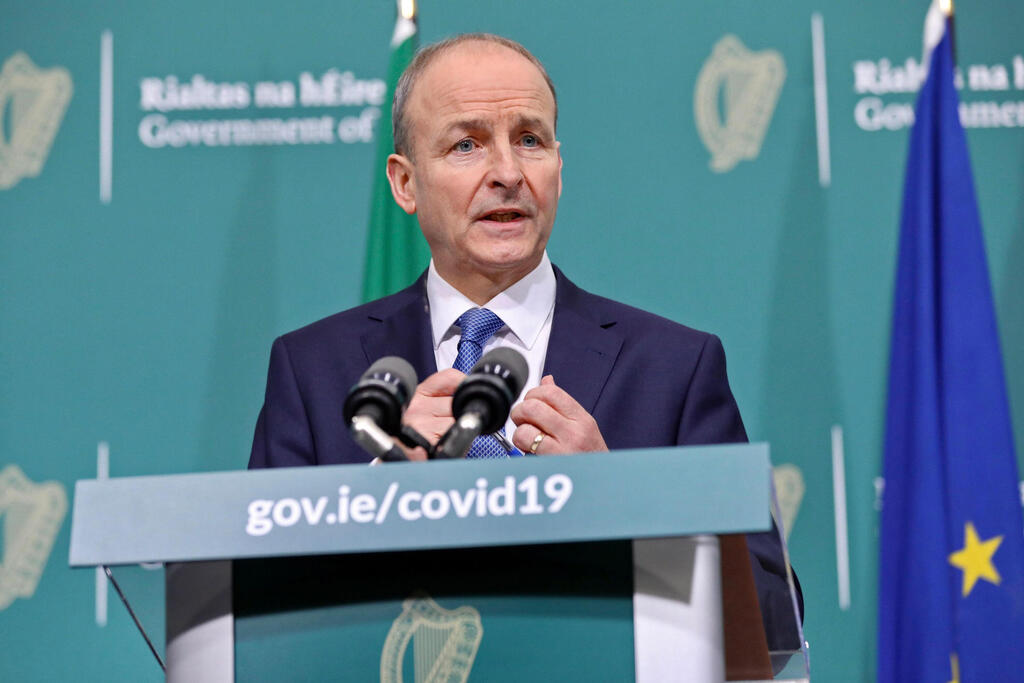Getting your Trinity Audio player ready...
In a move sending ripples through international diplomacy, three European nations officially recognized a Palestinian state Tuesday, igniting a fierce response from Israel. Spanish Prime Minister Pedro Sánchez set the stage with the announcement that Spain recognizes a Palestinian state encompassing the Gaza Strip, the West Bank, and with East Jerusalem as its capital.
"Spain will not acknowledge changes to the 1967 borders unless all parties agree," Sánchez clarified. The Spanish government was expected to formalize this recognition Tuesday.
2 View gallery


Spanish Prime Minister Pedro Sánchez
(Photo: EPA/Borja Puig De La Bellacasa/Moncloa HANDOUT )
Meanwhile, in Brussels, European Union foreign ministers convened for a pivotal discussion on imposing sanctions against Israel should it defy the International Court of Justice's rulings. Irish Foreign Minister Micheál Martin highlighted a strong consensus on adhering to international humanitarian and legal rulings. He stressed the necessity for Israel to "abide by these interim orders, open the Rafah border crossing, and suspend its military operations in the city."
Adding to the diplomatic drama, Slovenian Prime Minister Robert Golob revealed that his government will deliberate recognizing a Palestinian state this week. "On Thursday, the government will consider approving 'recognition of Palestine' for state legislature approval," Golob announced. "In the interim, we'll coordinate with like-minded nations to maximize pressure for an immediate cease-fire and the release of hostages."
After last week's declarations by Norway, Ireland and Spain, Israeli Foreign Minister Israel Katz called in the ambassadors of these nations for a stern meeting, where Foreign Ministry officials presented a video of footage from the kidnapping of female IDF soldiers from the Nahal Oz base.
Tensions with Spain further escalated following a controversial remark by Spanish Deputy Prime Minister Yolanda Díaz, who declared in an official video that "From the river to the sea, Palestine will be free," a phrase that implies the eradication of Israel. In a fiery retort, Katz labeled her "an ignorant person filled with hatred" and announced the severing of relations between the Spanish delegation in Israel and the Palestinians, including banning the Spanish consulate in Jerusalem from serving Palestinians from the West Bank.
In a blistering reaction to Spain's announcement, Katz challenged Spanish Prime Minister Sánchez: "(Ayatollah Ali) Khamenei, (Yahya) Sinwar, and Spanish Deputy Prime Minister Yolanda Díaz are advocating for the obliteration of the State of Israel and the establishment of an Islamic Palestinian terrorist state from the river to the sea. Sánchez, by not dismissing your deputy and by recognizing a Palestinian state, you are complicit in inciting genocide against the Jewish people and committing war crimes."
According to Dr. Emmanuel Navon, an expert in international relations at Tel Aviv University, while the recognition of a Palestinian state won't legally alter the current situation, it could have profound political repercussions. "Legally, it changes little. De facto, the Palestinian Authority isn't recognized as a state today but has embassies worldwide and UN representation. The recognition won’t alter that, but these declarations carry significant cognitive and political weight, especially for Palestinian leadership."
Navon further pointed out the political motivations behind these recognitions. "In Spain, the prime minister is unprincipled; despite losing the last elections, he formed a coalition with the extreme left to stay in power and is under their pressure, as they are pro-Iranian and pro-PLO. Slovenia also has a very radical left-wing government, and Ireland, due to its historical struggle against Britain, has always been connected to the PLO. The motive is primarily internal political dynamics within these parties."
First published: 16:30, 05.28.24


